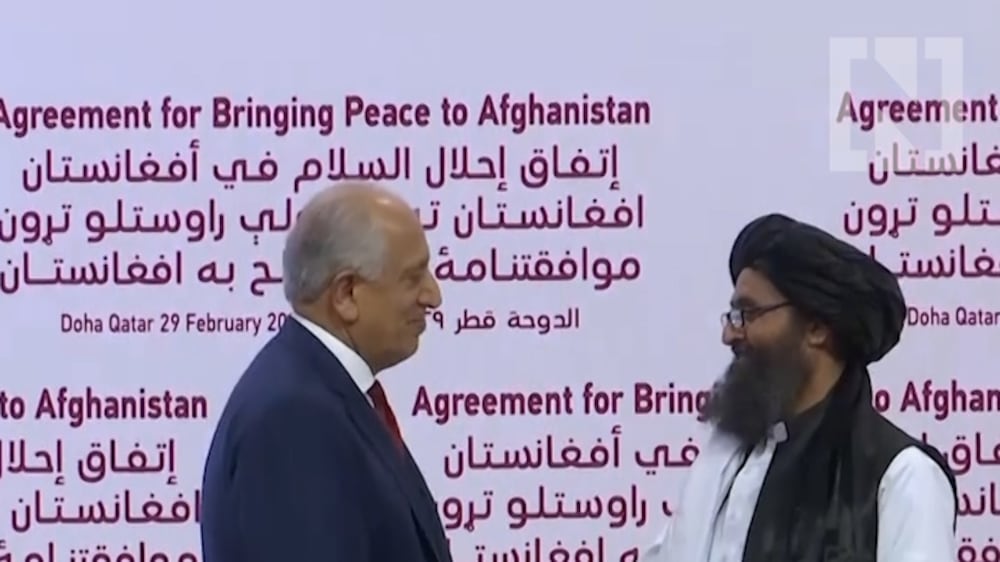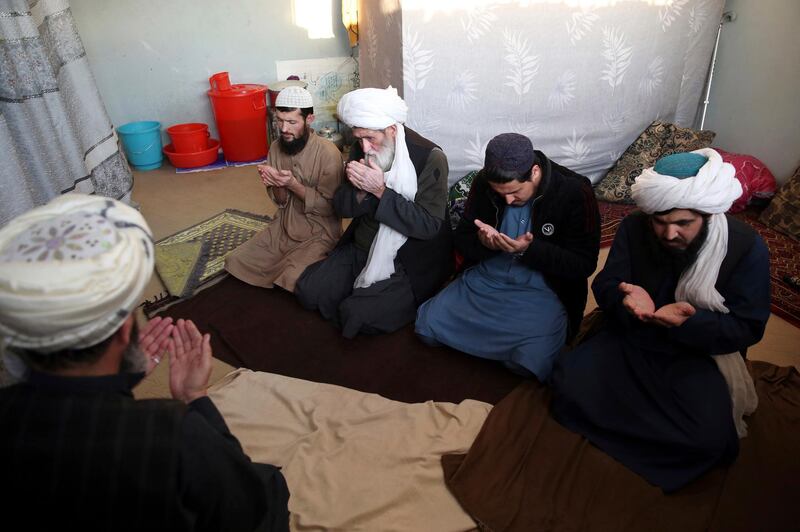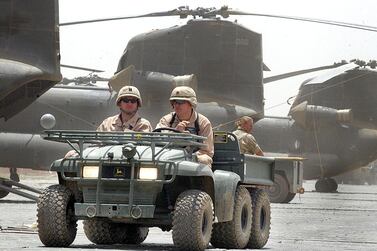The Afghan government plans to release thousands of Taliban fighters over the coming months, according to a decree signed by President Ashraf Ghani late on Tuesday.
But the Taliban said on Wednesday that Mr Ghani's plans to stagger the release breached a deal they struck with the US in February and insisted they would not talk with the government until all 5,000 prisoners were freed.
Under to Mr Ghani's plan, starting on Saturday, March 14, 1,500 prisoners will be released over weeks at a rate of 100 a day.
Once the intra-Afghan talks have started, another 3,500 fighters will be freed in batches of 500 every two weeks.
President Ghani has signed the decree that would facilitate the release of the Taliban prisoners in accordance with an accepted framework for the start of negotiation between the Taliban and the afghan government. Details of the decree will be shared tomorrow.
— Sediq Sediqqi (@SediqSediqqi) March 10, 2020
The deal signed between the US and the Taliban on February 29 mentioned the release of 5,000 Taliban fighters as a confidence-building measure.
The day after, Mr Ghani first rejected the plan, saying it could not be a prerequisite for talks and that “there is no commitment to releasing 5,000 prisoners”.
He recently changed his stance but said the release depended on a major reduction in violence.
While fighting was reduced a week before the US-Taliban agreement, it has since picked up throughout the country, killing dozens of fighters on both sides.
The Taliban usually announces the start of their annual fighting season with the beginning of spring.
Everything you need to know about the Afghan deal

Taliban spokesman Suhail Shaheen in Doha was not satisfied with Mr Ghani’s announcement.
“All 5,000 should be released before the beginning of talks,” Mr Shaheen said.
He said the militant group had handed over a list of 5,000 names to the US delegation.
The released inmates will have to sign a written commitment not to return to fighting, and older prisoners and those with medical needs will be given priority.
Afghanistan’s National Security Council will be responsible for organising the release.
But many Afghans are sceptical, worrying what a large-scale prisoner release could mean during the US troop withdrawal and with a divided government.
“Wasn’t releasing Taliban prisoners before the peace talks Ashraf Ghani’s red line?” activist Nargis Azaryun tweeted.
Ms Azaryun claimed that Mr Ghani agreed to cross the line for the endorsement of his presidency by US special representative Zalmay Khalilzad.
“Which other red lines will be crossed in his greed for power?” she asked.
Afghanistan’s Independent Human Rights Commission submitted an open letter to the Taliban and the Afghan government on the prisoner release, but has not received a reply.
“What specific mechanisms and processes will allow victims of prisoners to access justice now, and in the future?" commission chairwoman, Shaharzad Akbar, asked in the letter.
"How will these fit into wider mechanisms to ensure that any peace process includes a road map to justice for millions of Afghan victims?”
Direct talks between the Taliban and the Afghan government were due to begin on March 10, but no date, venue or list of those taking part was confirmed.
A senior government official told The National that the list was delayed by the prisoner swap dispute and the row between Mr Ghani and his rival in the earlier shared-power government, Dr Abdullah Abdullah.
Mr Ghani, who took the presidential oath on Monday, has been in a bitter rivalry with Dr Abdullah, the former chief executive of Afghanistan.
While the incumbent was announced winner of the election, both men have claimed the presidency, held inaugurations and are in the process of forming a Cabinet.
Mr Khalilzad tried to work out a solution between the two rivals, but has so far not been successful.
“I spent much of the last week trying to help President Ashraf Ghani and Abdullah Abdullah to come to an agreement on an inclusive and broadly accepted government," he said. "We will continue to assist."
US Secretary of State Mike Pompeo tweeted that he “opposes any effort to establish a parallel government or any use of force to resolve political differences.
"Prioritising an inclusive government is paramount for peace.”
An Afghan government official said: “It’s a delicate, sensitive game.
If not managed properly by the political elite and our international partners, this could lead to greater instability.”






